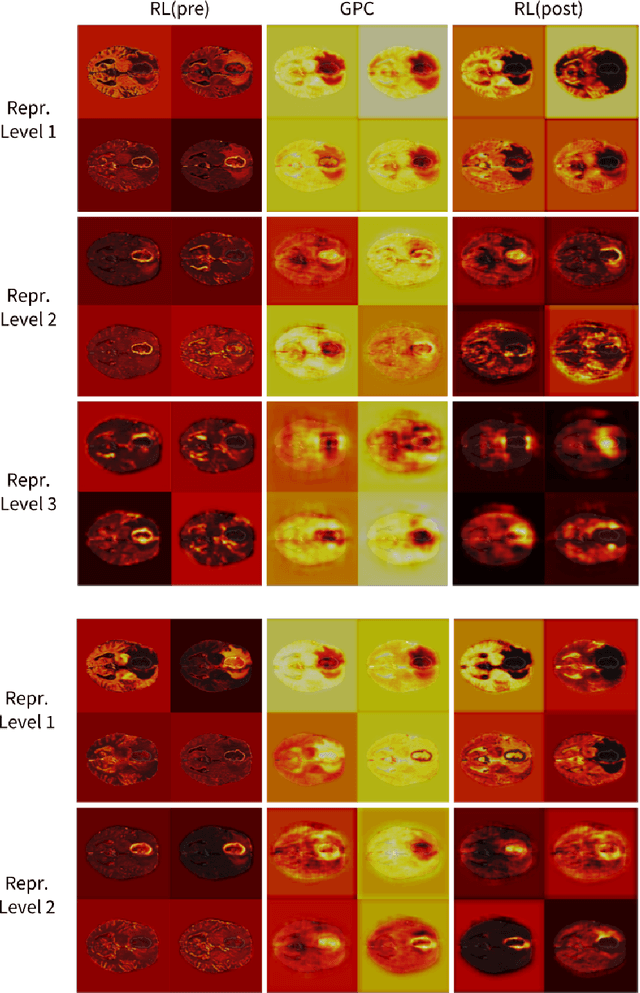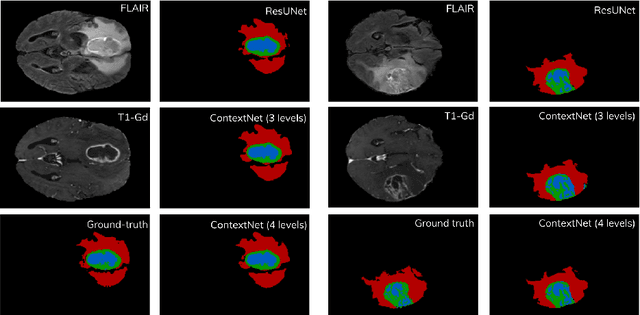Global Planar Convolutions for improved context aggregation in Brain Tumor Segmentation
Paper and Code
Aug 27, 2019



In this work, we introduce the Global Planar Convolution module as a building-block for fully-convolutional networks that aggregates global information and, therefore, enhances the context perception capabilities of segmentation networks in the context of brain tumor segmentation. We implement two baseline architectures (3D UNet and a residual version of 3D UNet, ResUNet) and present a novel architecture based on these two architectures, ContextNet, that includes the proposed Global Planar Convolution module. We show that the addition of such module eliminates the need of building networks with several representation levels, which tend to be over-parametrized and to showcase slow rates of convergence. Furthermore, we provide a visual demonstration of the behavior of GPC modules via visualization of intermediate representations. We finally participate in the 2018 edition of the BraTS challenge with our best performing models, that are based on ContextNet, and report the evaluation scores on the validation and the test sets of the challenge.
 Add to Chrome
Add to Chrome Add to Firefox
Add to Firefox Add to Edge
Add to Edge